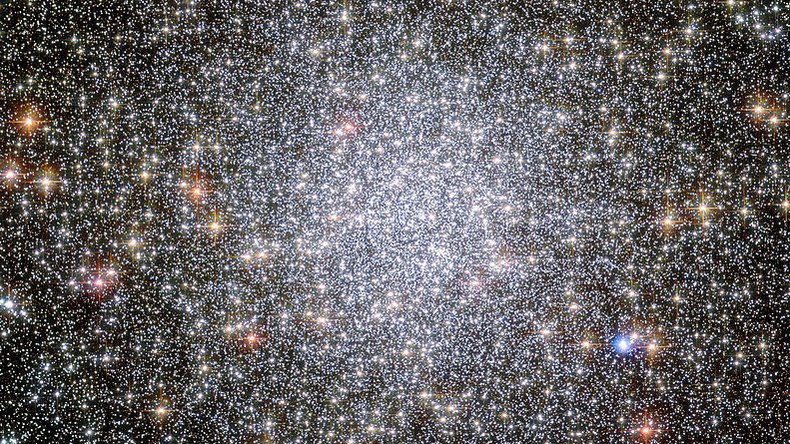Death star signals: 'Space beats' create music from dying stars

Scientists in China have used beats emitted from two newly-discovered stars, billions of kilometers from earth, to create funky music.
The catchy 38-second clip, shared online by the South China Morning Post, captured a range of unique sounds from the stars.
Both rare stars were discovered in the second brightest globular cluster, 47 Tucanae, which is some 16,700 light years away from the earth and 120 light years across.
Researchers at the National Astronomical Observatory of China (NOAC) have released the clip to encourage public interest in learning about the stars, known as ‘pulsars’.
Pulsars are dying stars which rotate and create a powerful beam of electromagnetic radiation. This emission was converted by the researchers into sound waves so they can be heard by the human ear.
READ MORE: Chirp & whistle: Russian space agency releases space ‘songs’ (VIDEO)
The beat was then used to create the main part of the music - set in C major - along with percussions and drums from the frequency.
The rotation of pulsar beams has been used by astronomers to study cosmic time frames and other issues such as bending of space time, the ripping of gravitational waves and mapping of galaxies.
Though the 47 Tucanae contains millions of stars, as few as 25 pulsars were discovered by the research team.












